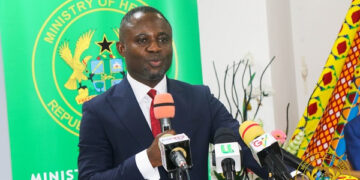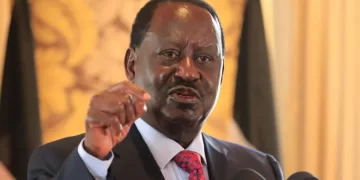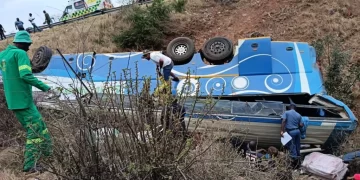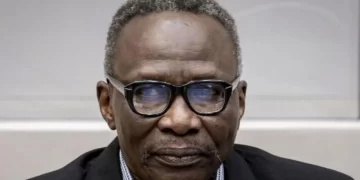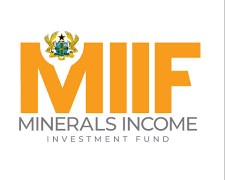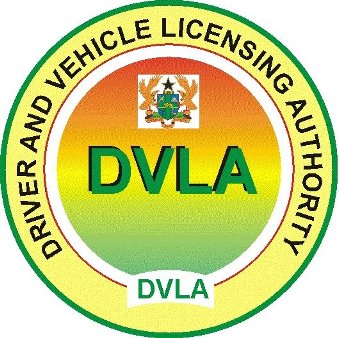The Driver and Vehicle Licensing Authority (DVLA) is nearing completion of its database integration with the National Identification Authority (NIA).
The DVLA has already linked its IT infrastructure to the NIA database and is working on applications to incorporate national identification cards (Ghana Cards) into the system.
The DVLA’s CEO, Kwasi Agyeman Busia, told the Daily Graphic that full integration with the NIA will be finished by the first quarter of 2023.
Read Also: GRA closes China Mall for refusing to fix electronic VAT system
“The technology infrastructure is ready, tried and tested. What needs to happen now is the application that we need to work. We have to do some coding on the application part to make sure that the systems are feeding into each other or handshaking so that once a person comes to DVLA and gives us their Ghana Card, we get every information about them,” he said.
Mr. Busia stated that a seamless connection between the DVLA and the NIA will also make it easier to conduct business with other stakeholder organizations such as the National Insurance Commission, the Motor Traffic and Transport Division, and the National Road Safety Authority.
He noted that numerous user agencies were negotiating with the DVLA to connect to their database for convenience of doing business, emphasizing that connection with the NIA would aid in the creation of a good data warehouse for real-time information on drivers and cars.
“With the integration, when you are trying to apply for driver’s license, there is no need sitting in our office for two hours to fill forms. Once you give us your Ghana Card, we should be able to pull your data and make use of it,” he said.
Digitisation
Mr Busia stated that the authority has already digitised papers from 1995 to 2021 and was actively working on the data for 2022.
“We are more than 95 per cent through with the digitisation process, and we will be done by the end of the year so that when you come to us from the first quarter of 2023, we do not have to do any manual process.
Apart from the efficiency and dependability, Mr Busia stated that digital documents were legitimate and quick to deal with.
He also stated that digitalization will help the DVLA achieve its objective of registering automobiles within one hour.
He said that digitalization of records would mean that 90% of processes would be completed online before anyone visited the DVLA for any service.
“It means that we could just type a person’s name and every vehicle you have owned and the history will be there,” he added.
Plugging leakages
Mr Busia stated that, while the DVLA’s complete chain of operations had not yet been entirely digitized, beneficial results had already been obtained.
For example, he claims that when the authority digitized car license plates in 2018, it addressed income leakages through that route.
“If you compare the revenue with the previous year’s, the whole of 2017 was GH¢3 million, but in one month (January 2018), we recorded GH¢6 million. What that means is that a lot of revenue was going into private pockets,” he said.
AfCFTA
The DVLA CEO stated that the agency was preparing to capitalize on the massive market that the Africa Continental Free Trade Area (AfCFTA) provides for the transportation sector.
He stated that the authority was aiming to strengthen its presence throughout the country’s land boundaries since that is “where the money will come from.”
He said that, like at the ports, payment of duty to get a DP plate will be made at land crossings such as Elubo, Aflao, and Paga.
“That is why we are increasing presence at the land borders and leveraging technology so that we can collect the needed revenue and let the National Security know what is happening in the county from our sector,” he added.
SOURCE: GRAPHICONLINE


